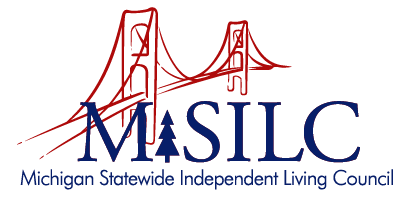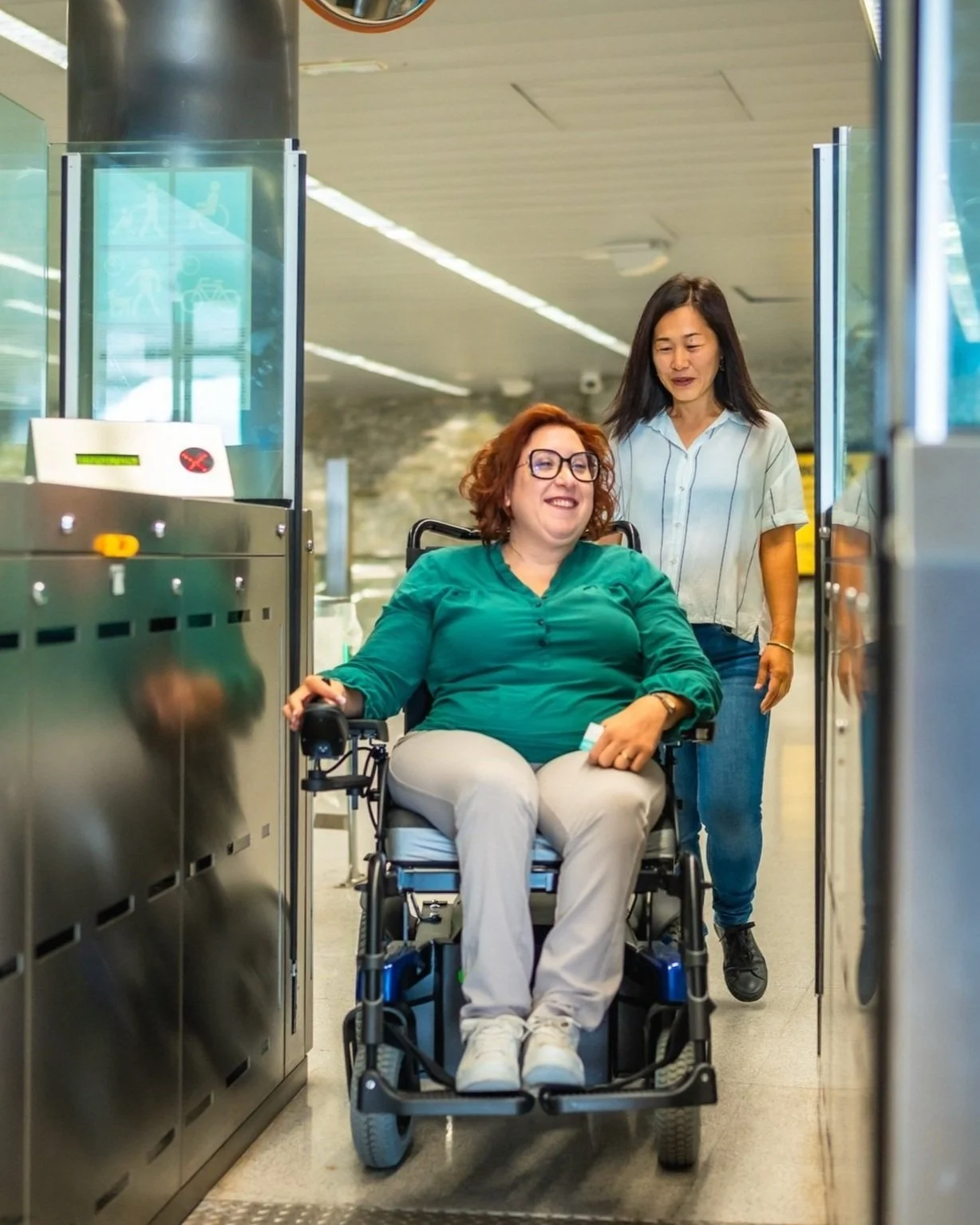Each July our community observes Disability Pride Month. It’s a time to celebrate our experiences and show the world how people with disabilities move through and experience that world in a variety of different ways and that we live rich and rewarding lives that have value.
We also celebrate the many wins in the disability rights movement with a special emphasis on the Americans with Disabilities Act. Signed into law by President George H. W. Bush on July 26, 1990, the ADA was a major turning point for disability rights that propelled our movement forward.
ADA pop-up displays at the Jackson library.
As part of this year’s Disability Pride Celebration, we have partnered with select public libraries across Michigan to host special ADA pop-up displays. Library visitors can explore a powerful visual timeline of the disability rights movement, learn about influential leaders in the disability community, and discover the impact the ADA has had on the lives of millions. As we said, we have much to celebrate!
Unfortunately, today’s political machinations seem intent to not just stop our momentum, but to push us backwards: drastically cutting Medicaid and implementing arduous requirements, attacking DEI (which, of course, includes people with disabilities) as if diversity, equity, and inclusion are four-letter words, shuttering the Administration for Community Living, the uncertainty around the funding for students with disabilities, a Health and Human Services Department at odds with vaccinations. It is against this backdrop that we observe Disability Pride Month in 2025.
While this is a frustrating and painful time, it is important to remember that we are not in completely uncharted territory. Before its passage, the ADA had the support of voters across the country, but it was not without its detractors. Business groups opposed it, saying it cost too much and would harm businesses, especially small businesses. Greyhound Bus Lines claimed it would destroy public transportation. Evangelical Christian groups opposed it because they did not want people with HIV/AIDS protected by the ADA.
Woman in a wheelchair moving through a passageway, followed by another woman.
And yet, despite that opposition, we prevailed. And we will prevail again. The ADA did not solve every issue of accessibility, discrimination, or stigma. There will always be work to do when it comes to protecting and expanding our rights. One of the ways we do that is by telling our stories and being clear about what we need, especially to people in positions of power. In fact, we have an easy way for members of the disability community and allies to communicate with elected leaders about crucial needs: affordable and accessible housing, accessible transportation, and access to mental health care. We must make ourselves heard.
We will not stop fighting for our right to live, our right to be fully included members of society, and our right to the accommodations we need to do so.
We will also not stop celebrating. In the face of adversity, celebration is an act of resistance. It’s a way for people with disabilities to show that we are not weak, we are not defeated, and we are not going away.
Jamia Davis, Chair MI-SILC
Steve Locke, Executive Director MI-SILC




